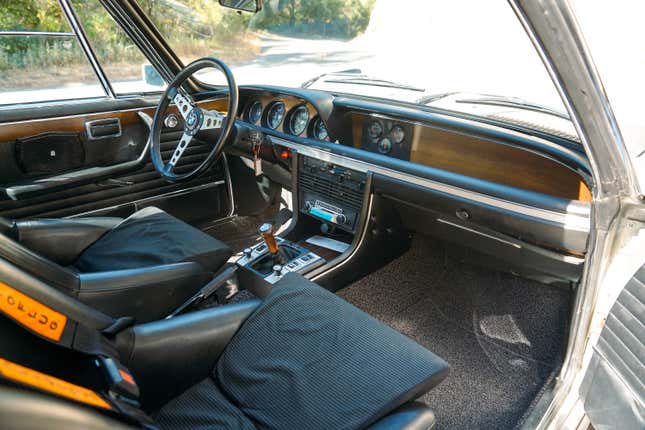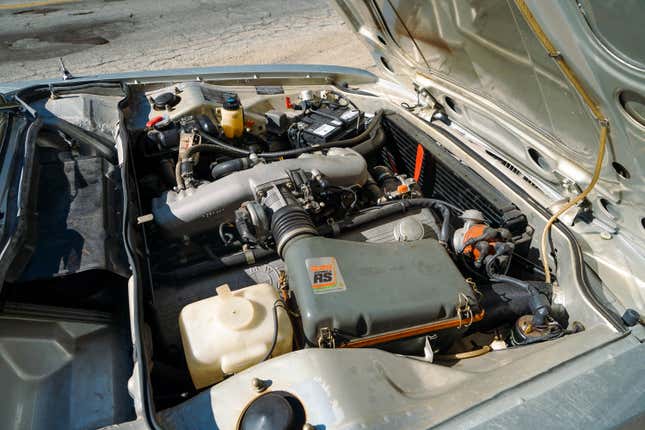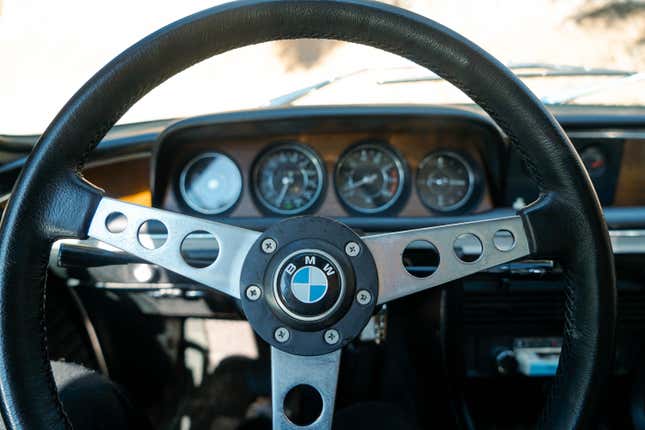Modern cars are incredible things — especially modern performance cars. They can accelerate so hard that your eyeballs explode, then casually take you to your favorite drive-thru coffee shop in total air-conditioned, massaging-seat comfort, and only ask for an oil change every few years.
Classic performance cars aren’t like this. They make you work for everything, and the really good ones make you feel like they’re doing everything to spite you when you drive around town. This was certainly the case with the 1973 BMW 3.0 CSL that I drove at Monterey Car Week, and I loved it.
For those of you who are perhaps less well-versed in BMW lore, the BMW 3.0 CSL is a racing homologation special based on the E9 chassis. It’s powered by a 206 horsepower 3.0-liter M30 inline-six cylinder engine paired with a four-speed manual transmission. CSL stands for Coupe Sports Licht (for “lightweight”), and shed a bunch of weight compared to the standard model thanks to plastic windows, thinner steel body panels and removed sound deadening.

As a result, the CSL is a raw, simple, objectively beautiful car. This makes sense, given that this was the brainchild of Bob Lutz, then the head of BMW’s global sales department. Previous lightweight racing E9s had been built by storied BMW tuner Alpina.
The CSL’s come-on-I-dare-you attitude is apparent immediately when you open the worryingly lightweight door and climb into the Scheel racing seat. There just isn’t much in the cabin: An eight-track player, a bendy map light, and (in a surprising concession to comfort) power windows front and rear round out the list of luxuries.
This particular car belongs to BMW’s museum. It’s a fairly low-mileage example, but it’s also nearly 50 years old, so there are some quirks. Before you get in it, you have to pull a pair of hood pins, open the engine compartment, and flip a battery cut-off installed because there’s a current drain the team is working to trace. Neither the horn button nor the windshield wipers work, not ideal on a misty Monterey morning.

Throwing the car into gear is no chore; first is easy enough to find, despite the shifter’s slop, but the clutch is heavy, and the bite point is right at the top of the pedal’s travel. Also, there’s no power steering. Once moving, this isn’t a big deal, but given how tightly I’m strapped into my seat by some profoundly unsafe-looking four-point belts, getting leverage to turn from a near-stop isn’t super easy.
After about 45 minutes in Car Week traffic (and several embarrassing stalls), I’m able to get the car onto some open roads. This is where the CSL starts to change. That stiff, unassisted steering becomes light and communicative. The heavy brake pedal now offers plenty of feel to make modulation easy. The slightly cantankerous M30 engine starts to breathe and pulls shockingly hard, even in top gear, its angry, raspy note reverberating throughout the uninsulated cabin.
This is the magic of old sports cars. They treat you like crap when you do anything other than what they were designed for. Then the second you let them off the leash, they turn into these mythical machines that generate nostalgia faster than they put out uncatalyzed exhaust.

Driving through a mostly empty Carmel Valley early in the morning, I downshift from fourth to third, finally nailing the blip after screwing it up a handful of times. The engine blares. I could be some forgotten factory driver on a damp corner of the Nurburgring in the 1970s, cigarette poking through my open-face helmet. I feel heroic; the car feels unflappable, like it could do this forever.
People always crow about how you should never meet your heroes. Screw that. Meet them. Just understand that they’re flawed, that their legend exists outside of time. The secret is to love them anyway, for what they are and what they’ve done, warts and all.
This is how I feel about the CSL. Driving it is something I’ll never forget.